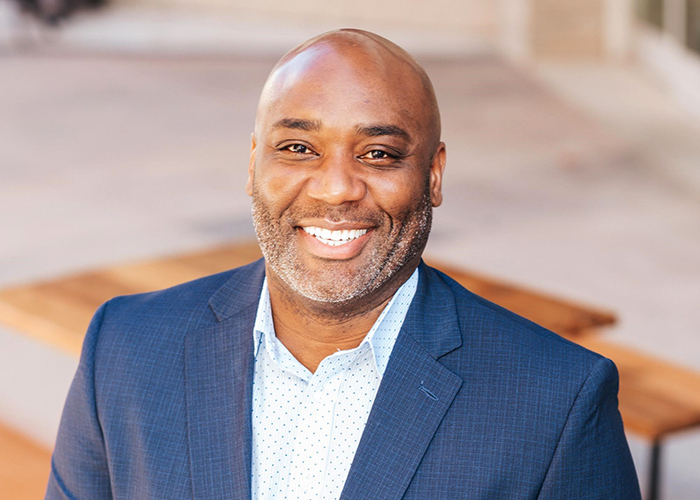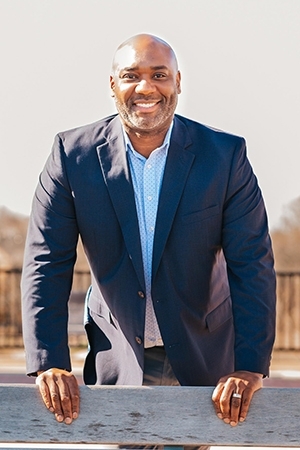homepage | Fostering Inclusion in the Workplace: Five Questions With Jermaine Jamison
June 9, 2022
June 9, 2022

Inclusion has become a more common term in business vernacular, but what does it actually mean to put it into practice? In our interview below, Jermaine Jamison offers insight into the question based on years of experience.
Jamison leads Fostering an Inclusive Workplace Environment, a two-hour workshop on July 27, 2022, 9-11 am. Learn more details.
Jamison co-founded Jamison Perry, a recruiting and staffing organization, and is president of 3E, LLC, a provider of talent management consulting, diversity, equity, and inclusion consulting, and organizational training and career coaching. He also serves as the Lenexa Chamber of Commerce board chairman and SHRM-KC Director of Diversity, Inclusion, Equity, and Belonging. He brings more than 20 years of experience in leadership and partnership-building to the discussion about inclusion.

Inclusion is a fundamentally understandable concept, but are there common misperceptions of what it means when applied to the workplace?
There are two common misperceptions of what it means to apply the concepts of an inclusive workplace. One is that applying the concepts of an inclusive workplace has an end date. All team members must invest and have a daily commitment to ensure inclusion is a foundational pillar of the organization.
The second misperception is that HR is the primary stakeholder. Every team member is an individual stakeholder, and embracing that fact is essential when applying concepts for an inclusive workplace.
Can inclusion organically happen in a workplace, or does it involve clear intention and action to shift from mindset to behavior?
While inclusion can happen organically in the workplace, specific intentions and actions must shift from mindset to behavior. Our biases based on our experiences and mindset are often our most significant hurdle.
It’s my opinion that Similarity Attraction bias, “the tendency of people to be attracted to others who are similar to themselves in important respects,” must be acknowledged and addressed as part of an individual choice to be inclusive.
Whose responsibility is it to foster the practice of inclusion in a workplace?
I believe everyone within an organization has a responsibility to foster the practice of inclusion in the workplace. To be inclusive within the organization is an individual choice, unlike diversity, which can be legislated and mandated by the organization. Choosing to include others is the first step to creating an inclusive workplace environment.
Why invest time to be inclusive? What’s the upside for individuals and organizations?
Investing the time to be inclusive has a significant impact inside and outside an organization’s walls. The upside for individuals can be life changing. When choosing to be inclusive, we allow ourselves to connect with others authentically on a human level, discover things that bring us together, and open the door for personal growth.
The upside for inclusive organizations is boundless. Organizations that foster an inclusive workplace environment where everyone has an opportunity to listen, learn, and share their voice, will benefit from their uniqueness, create a great work culture, and team members will advocate for the organization.
Led by Jermaine Jamison on July 27, 9-11 am, participants will discuss the traits of an inclusive workplace and what team members, leaders, and organizations can do to create an inclusive environment that drives impactful employee engagement. Participants will gain understanding of the critical elements needed to truly foster inclusion in the workplace.
